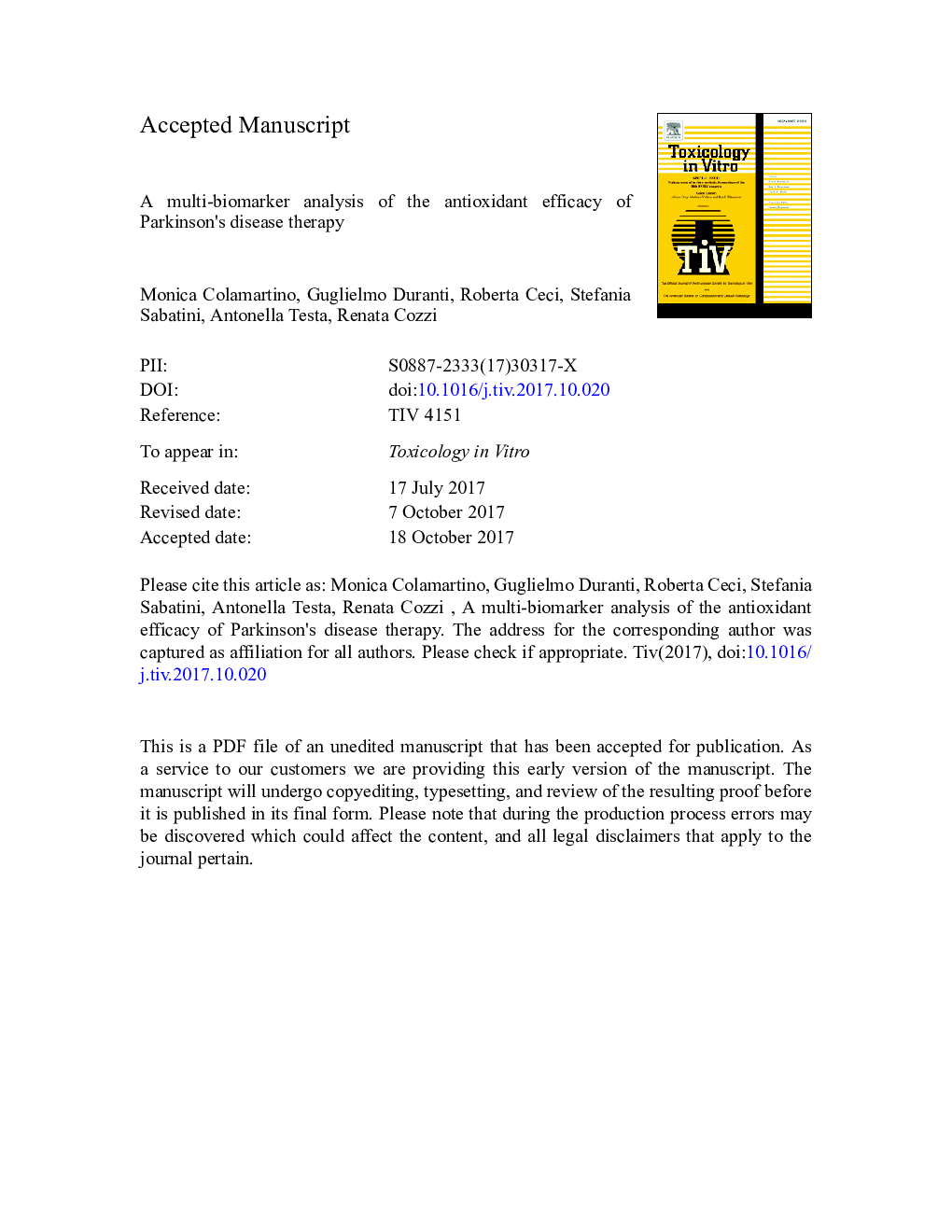| Article ID | Journal | Published Year | Pages | File Type |
|---|---|---|---|---|
| 8554035 | Toxicology in Vitro | 2018 | 23 Pages |
Abstract
Our aim was to evaluate the impact of l-dopa and carbidopa on several biomarkers of exogenously-induced oxidative stress to validate the overall antioxidant effectiveness of the therapy. For this purpose we used peripheral blood lymphocytes from healthy donors treated in vitro with l-dopa and carbidopa and then challenged by different concentrations of H2O2. Glutathione (GSH, GSSG, GSH/GSSG), malondialdehyde (TBARs), protein carbonyls as well as DNA damage (8-oxo-7,8-dihydro-2â²-deoxyguanosine (8-oxodG) and micronuclei (MN)), modulation was evaluated. Our results show that l-dopa, but not carbidopa, decreases the markers of lipid and protein oxidation and increases the total content of glutathione. Both l-dopa and carbidopa (alone or in combination) are able to counteract the formation of 8-oxodG and to reduce H2O2-induced micronuclei.
Keywords
Related Topics
Life Sciences
Environmental Science
Health, Toxicology and Mutagenesis
Authors
Monica Colamartino, Guglielmo Duranti, Roberta Ceci, Stefania Sabatini, Antonella Testa, Renata Cozzi,
